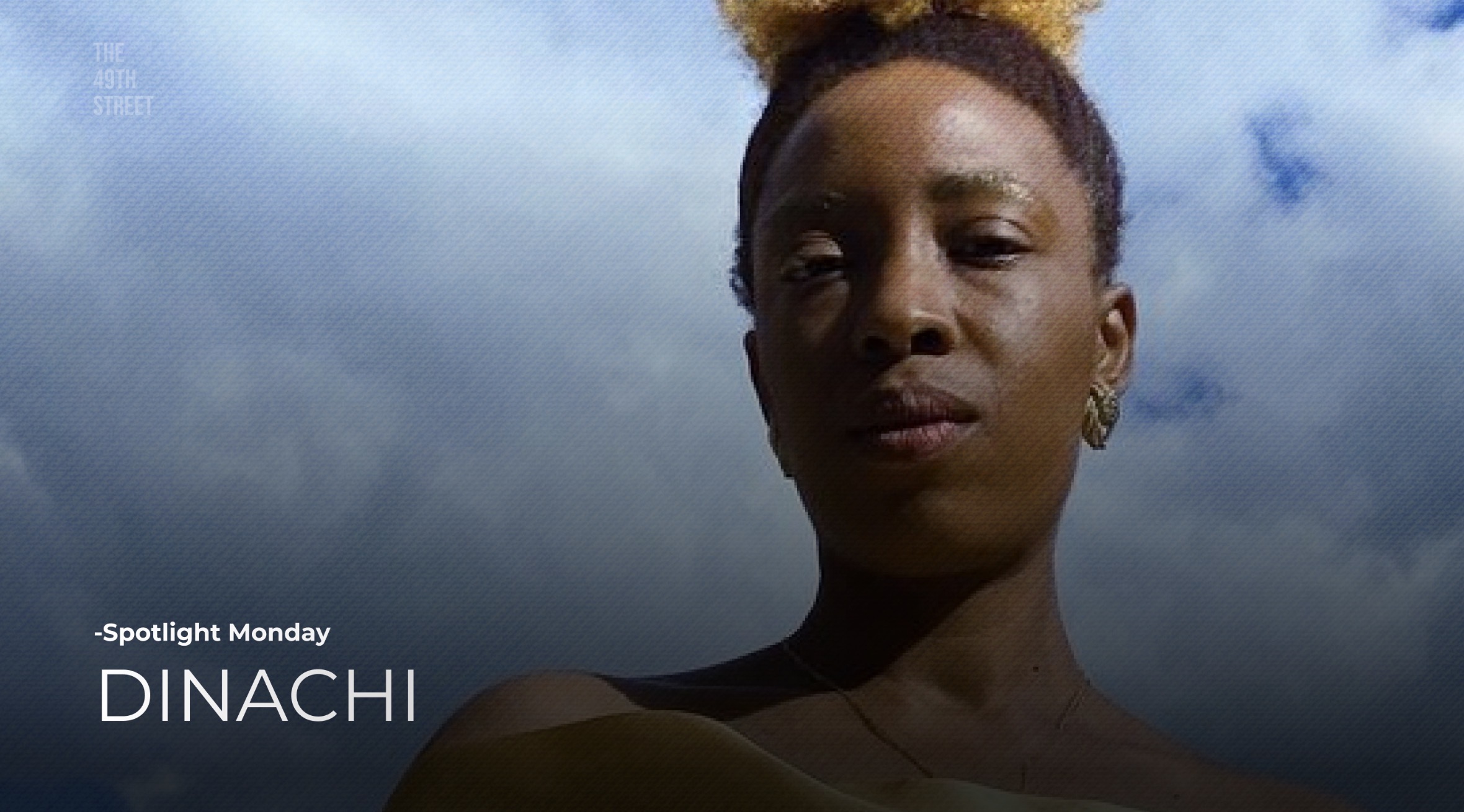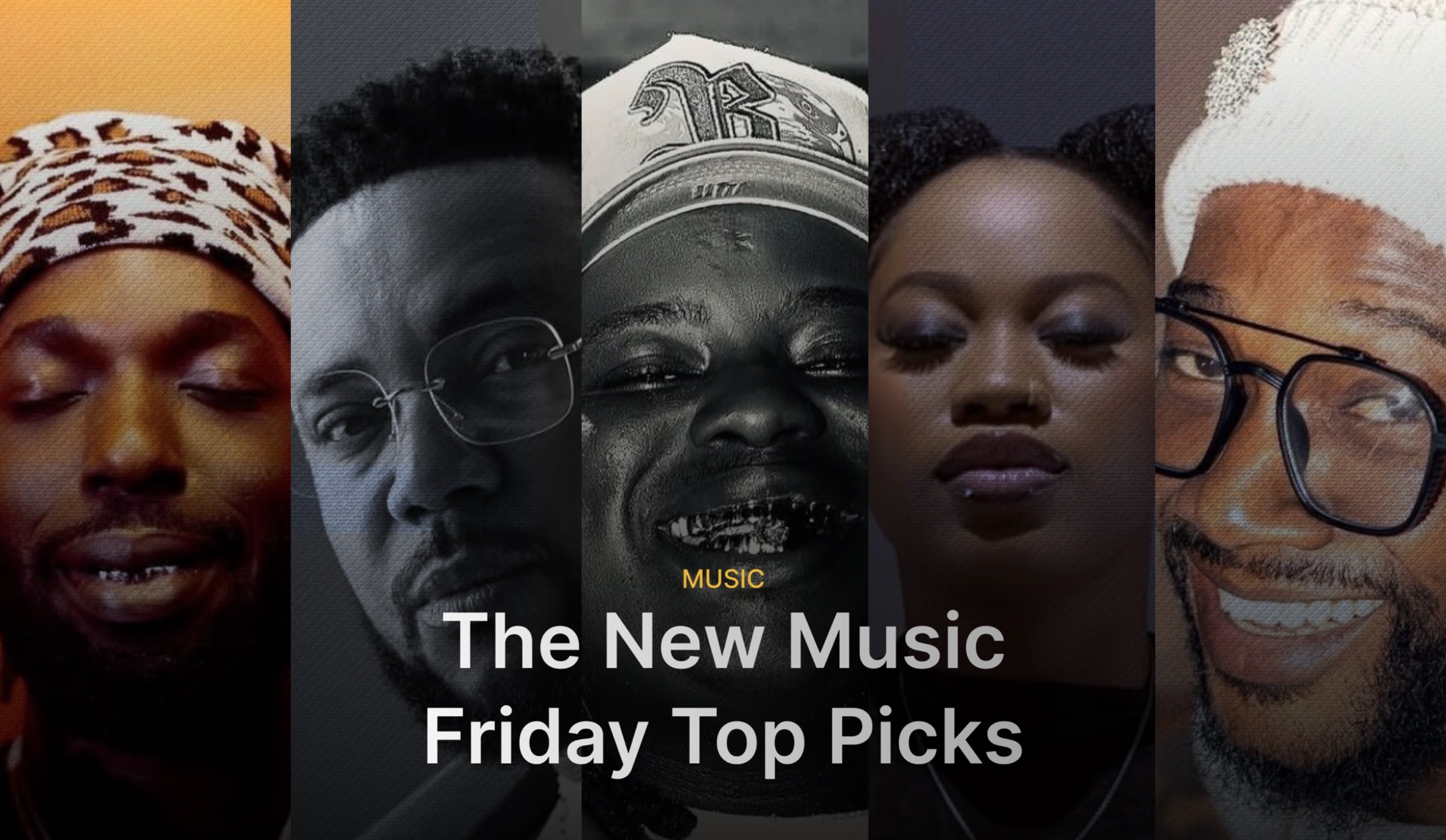by Robodu Aighu
Picture this: you’re inside a warehouse rave at 2 AM in Lagos, you’re drunk as hell, your feet are probably sore from standing all night, there are flashing lights everywhere, all around you”,” people are dancing to their hearts’ content, you are having the time of your life. This is the growing reality of Nigerian youth trying to prop up their nightlife experience in a new creative way a la raves.
But where there’s a party, there’s usually music. So what kind of music is fueling this change in the Lagos nightlife? Simple answer: Afro House.
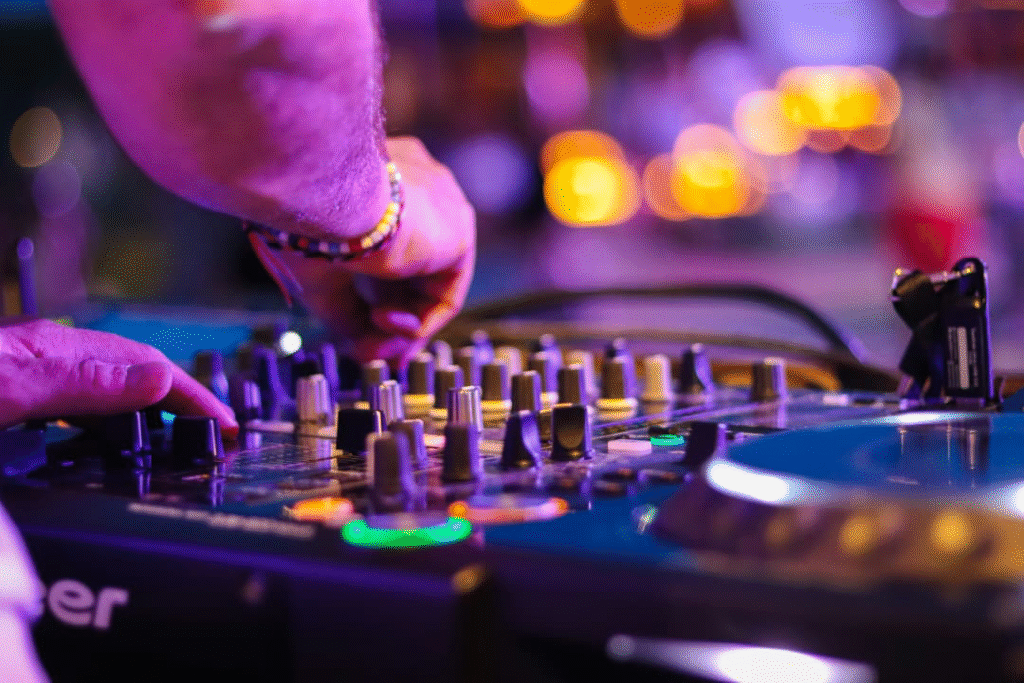
While traditional Lagos clubs are filled with the familiar rhythms of Afrobeats and the clink of champagne bottles, a parallel musical universe has emerged in warehouses, art galleries, and unconventional spaces.
Here, the soundtrack is distinctly different: the percussive complexity of South African Afro House fused with Nigerian sensibilities, creating a sound that feels both ancestral and futuristic.
The Sonic Architecture of Change
Afro House, which originated in South Africa’s townships during the 1990s, fuses elements of Kwaito, Bubblegum music, Tribal, Deep House, and Soulful House”.”
Emerging from cities such as Pretoria, Soweto, Johannesburg, Durban, and Cape Town, Afro house has found fertile ground in Lagos’ creative ecosystem. The genre’s foundation—a marriage of traditional house music’s four-on-the-floor rhythm with African polyrhythmic patterns—resonates deeply with Nigerian listeners already familiar with complex rhythmic structures from highlife, juju, and traditional Yoruba music.
“When I first heard Afro House, it felt like coming home to something I didn’t know I was missing,” explains Daniel, a Lagos-based music enthusiast. “The rhythms spoke to something ancestral, but the production was so crisp and modern.”
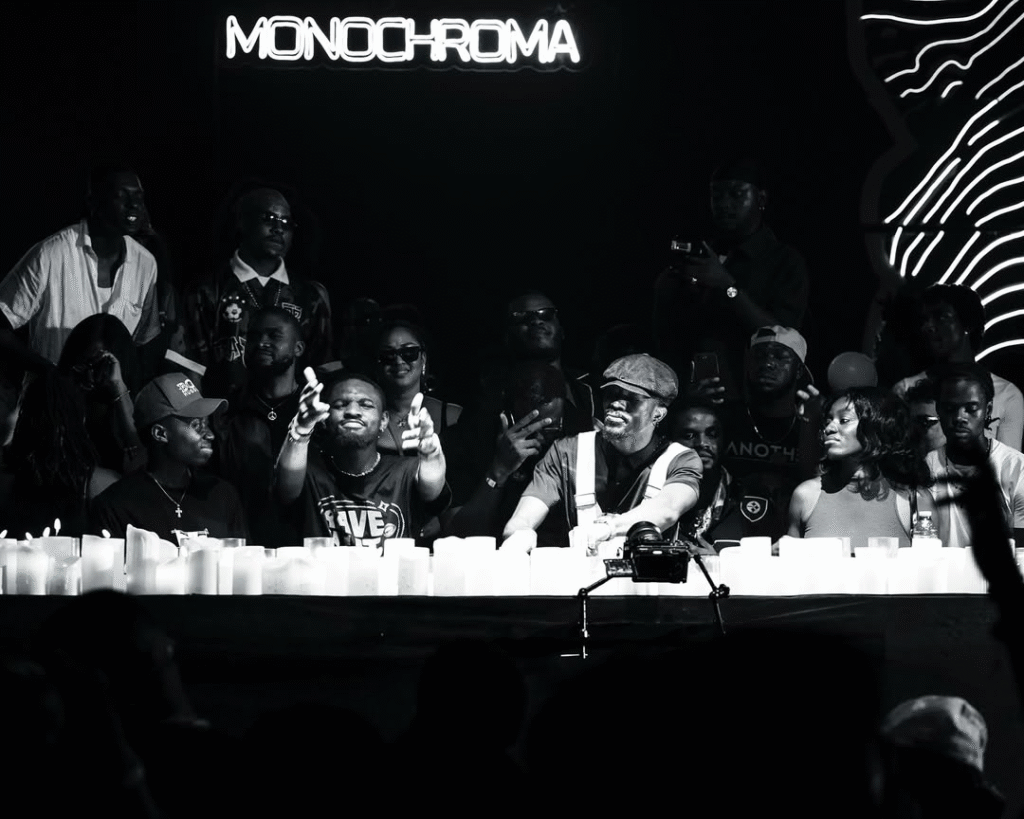
The genre’s appeal lies in its technical sophistication. Unlike the more melodically-driven Afrobeats, Afro House prioritizes rhythm, texture, and atmosphere. Tracks typically build slowly, layering percussion elements.
Nigerian Artists Redefining the Sound
Nigerian producers are redefining Afro House by infusing it with indigenous rhythms and contemporary Afrobeats influences. Producers like Sarz have been instrumental in this evolution, taking the genre’s South African DNA and splicing it with distinctly Nigerian elements.
This can come in the form of remixes, where, by stripping away the typical Afrobeats melodic hooks and replacing them with hypnotic loops, they create tracks that maintain the original’s emotional core while extending its dancefloor potential.
The technical innovation goes beyond simple remixing”,” though. Nigerian producers are incorporating indigenous instruments through digital sampling and live recording. The Nigerian approach to Afro House integrates elements from Amapiano (log drums, shakers) and Afrobeats (syncopated basslines, catchy vocal hooks).
And international artists are taking notice – French Martiniquan DJ Auguste collaborated with Nigerian artist Asake on a remix of “Basquiat.” Similarly, Haitian DJ Francis Mercier released a remix of Omah Lay’s hit “Moving.” Most recently, a remix of the song “Isaka” by South African artist CIZA was released, featuring Tems and Omah Lay. These collaborations show how quickly the genre is going global.
The DJ as Musical Architect
In Lagos’s rave scene, DJs aren’t just playing tracks; they’re constructing sonic experiences that can last five to eight hours. This extended format allows for musical storytelling impossible in traditional club environments, where shorter sets and constant interruptions break the flow.
The technical skill required is considerable. Lagos DJs often perform with multiple CDJs and samplers, triggering live percussion loops and vocal samples during their sets. This live element adds unpredictability and energy, turning each performance into a unique musical moment.
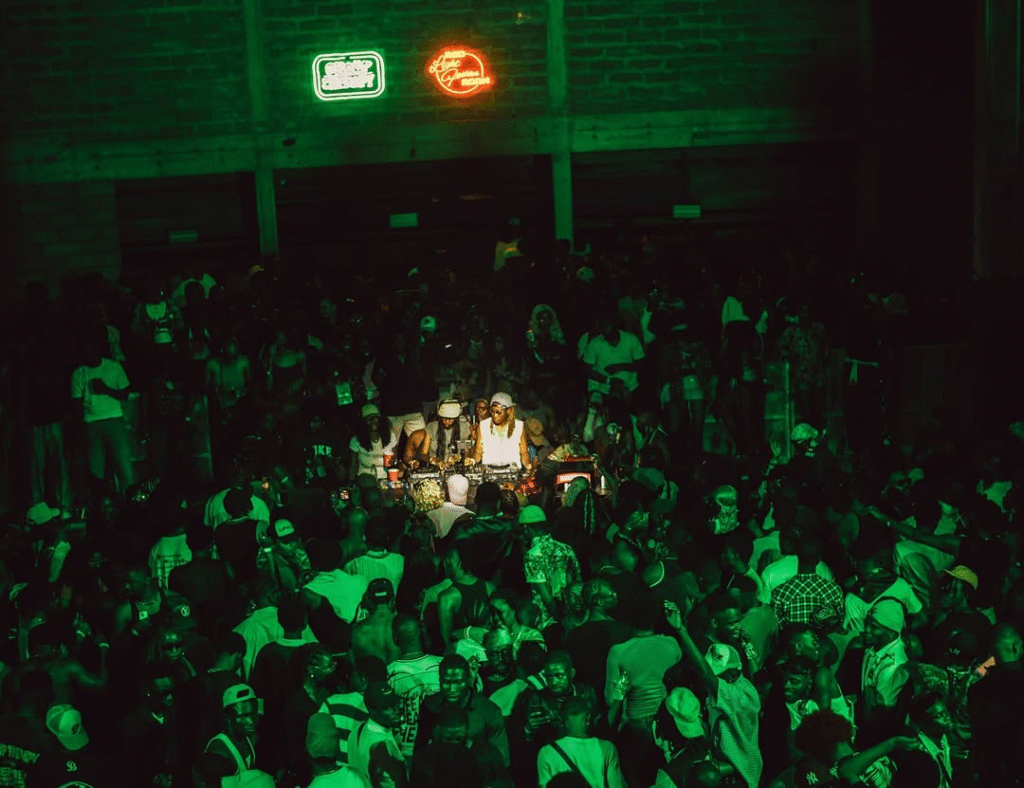
Lagos DJs are moving beyond simple track transitions and are instead creating entirely new sonic experiences for rave attendees and Afro House listeners. Long sets (often 5+ hours) allow them to combine Afro House with Afrobeats, Amapiano, and deep house, creating a hypnotic, culturally rich experience with DJs like Aniko (Group Therapy) remixing Afrobeats hits into deep house, bridging familiarity with innovation. “I remember hearing this mix of the song Yeke Yeke at Monochroma,” and I was immediately sold,” Daniel informed me.
The Warehouse as Concert Hall
The rave environment itself has become crucial to the music’s impact. Unlike traditional clubs with their compartmentalized spaces and hierarchical layouts, warehouse raves create democratic sonic experiences. Without VIP sections or bottle service areas, every person experiences the same powerful sound system and shared rhythmic pulse.
Sound system quality has become a point of pride for rave collectives.
Group Therapy, Monochroma, and Element House invest heavily in professional-grade audio equipment, understanding that Afro House’s subtle textures and deep bass frequencies require pristine reproduction. The result is an immersive experience where attendees don’t just hear the music—they feel it resonating through their bodies.
“In a club, you might miss those subtle details, but in that warehouse with that sound system, every element was crystal clear,” Tega informs me.
Cultural Export and Global Recognition
This year alone, several international Afro House DJs have performed in Lagos, such as Nitefreak at Group Therapy’s second anniversary in August and the Drumetic Boyz at Monochroma VI in June.
And the Lagos Afro House scene isn’t just consuming international sounds—it’s exporting its own innovations. Lagos DJs are also exporting the sound worldwide”,” with Boiler Room Lagos spotlighting local Afrohouse DJs, which has triggered international bookings.
The international dance music industry has taken notice. According to the IMS Business Report 2024, Afro House rose from the 18th most searched electronic genre in Q1 2022 to 9th in Q3 2023 on Beatport. This surge reflects not just South African productions but also the growing influence of Nigerian interpretations of the genre.
Nigerian Afro House tracks are increasingly featured in international festival lineups. The genre’s sophisticated production values and cultural authenticity appeal to global audiences seeking alternatives to more commercialized electronic music. DJs like &friends (Sean Thomas) and Nitefreak have found receptive audiences for Afro House-influenced sets, often featuring tracks by Nigerian producers.
The Streaming Revolution
Spotify, noting a 403% surge in Nigerian EDM streams since 2022,” reflects changing listening habits among Nigerian youth. Playlists dedicated to Afro House and its variants have emerged, curated not just by international taste makers but by Lagos-based DJs and music enthusiasts.
This digital distribution has democratized access to the genre, extending it” beyond rave attendees. Young Nigerians are discovering Afro House through streaming platforms, then seeking out live experiences. The cyclical relationship between digital discovery and physical experience has accelerated the genre’s growth.
The Future Sound of Lagos
As traditional club culture struggles with economic pressures and changing youth preferences, Afro House offers a sustainable alternative. The genre’s emphasis on musical quality over commercial polish aligns with a generation seeking authentic experiences over status signaling.
The rave scene has provided a laboratory for this musical experimentation not commonly seen around. DJs can take risks, test new sounds, and develop extended musical narratives without the pressure of keeping every moment immediately accessible to casual listeners.
“…I love that everybody is coming to these parties and respecting them as free, safe spaces,” explains Adedoja Durosola, a founding member of the Sweat It Out collective, but the statement applies equally to the music itself. Afro House, as interpreted by Lagos artists and DJs, represents a meeting point between global electronic music traditions and distinctly Nigerian musical sensibilities.
The warehouse may empty at dawn, but the musical conversation continues. In studios across Lagos, producers are experimenting with new fusions, sampling traditional recordings, and pushing the boundaries of what Afro House can become. The rave scene has provided the testing ground, but the music itself has become the revolution—transforming not just how Lagos parties, but how it understands the relationship between tradition, technology, and cultural expression.
As Aniko puts it: “It’s not just about the party, it’s about the people.” In Lagos, those people are reshaping the very definition of Nigerian music, one hypnotic beat at a time.


